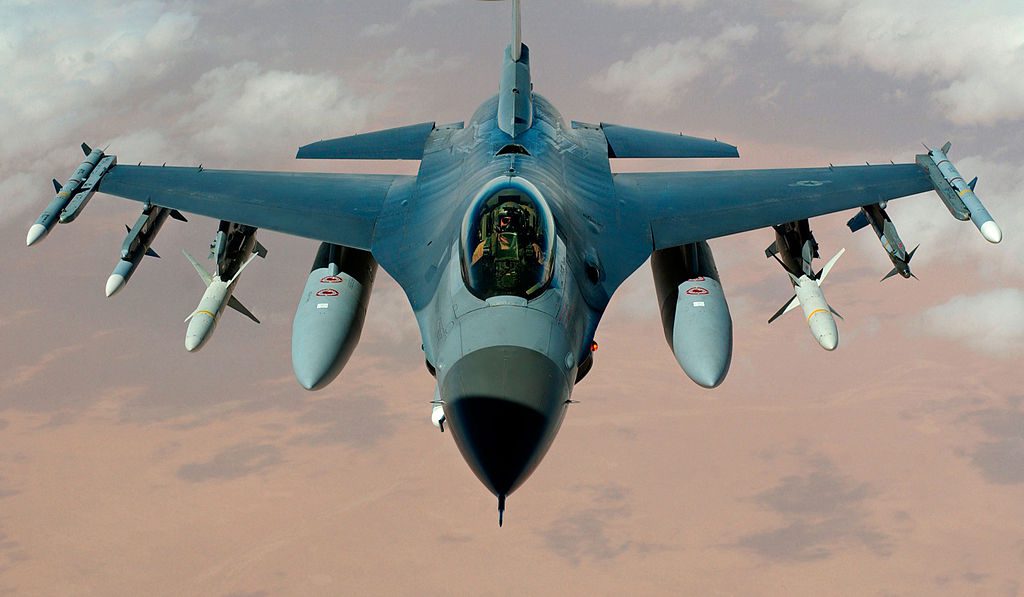Sam Perlo-Freeman is a Research Coordinator at Campaign Against Arms Trade and a Senior Fellow with the World Peace Foundation. Previously, he was a Senior Researcher at the Stockholm International Peace Research Institute (SIPRI), from 2007 to 2016. This interview is the first in a series highlighting the research team for the Defense Industries, Foreign Policy and Armed Conflict project.
WPF’s Aaron Steinberg caught up with Sam Perlo-Freeman over email to learn more about his involvement with the project
Aaron Steinberg: What was the focus of your previous research?
Sam Perlo-Freeman: At WPF, as Program Manager for Global Arms and Corruption, I focused on corruption in the international arms trade, and arms procurement more broadly. The centerpiece of this was developing, along with Xiaodon Liang, the Compendium of Arms Trade Corruption, which gathers 41 cases of corruption, mostly in the international arms trade but some in domestic arms procurement, in a common format, with some standard key facts (When the deal took place, the countries and companies involved, the equipment or services sold, the value of the deal, and the sums involved in the corruption allegations), and then a narrative section covering the deal, the corruption allegations, the investigations that took place, and the outcomes. There is also a “Dramatis Personae” list for each case, and a long list of sources. The cases are all based on open source information; the aim was not to carry out original investigations, but to catalog and systematize information that is already available.
In addition to the Compendium, I and other colleagues produced a number of reports, including some country studies and some thematic studies that drew out and explored some of the key patterns arising from the cases in the Compendium. I think one of the most interesting, which I wrote along with Xiaodon, was one on the relationship between political finance and arms trade corruption, which I think is an under-explored area – the key insight being that the corruption associated with major arms deals is not simply about personal enrichment, but is often also about funding political parties and election campaigns, and political activity more broadly.
AS: What questions do you want to engage with through the current project with WPF?
SPF: The current project, on Defense Industries and Armed Conflict, funded by Carnegie Corporation, explores the supply of arms to countries engaged in conflict by major arms exporters, and the reasons for this. The focus is on the legal, government-authorized supply of arms by recognized arms/defense companies, rather than on the illicit trade, as a key question is the motivations for governments to permit these exports, especially when their own arms export control regimes are supposed to prevent the misuse of exported arms. My main role is to explore, quantitatively, the patterns of arms supplies by the top 10 (or possibly more) arms exporters to countries involved in any of the major armed conflicts of the 21st century. The questions this phase of the project are asking include, how often does this happen, are there counter-examples where major exporters exercise restraint in arms sales in response to conflict, and if so in what circumstances? Are there opposite cases where arms sales actually increase when conflict starts or escalates (whether due to opportunism or active political support for one side), and again are there discernible patterns as to when this happens?
The second stage of the project, led by other researchers in the team, will take a much deeper dive into the cases of the US, UK, and France, asking the “why” questions, focusing in particular on the political influence of the arms industry on government, and the foreign policy interests of the exporters, as well as the interaction of these two. One question that interests me is, while foreign policy imperatives may clearly shape an exporter’s initial willingness to supply arms to a particular client, to what extent can the establishment of a long-term arms sales relationship between a supplier and recipient country itself reshape the supplier’s foreign policy priorities? Arguably, the UK’s long-standing and highly significant (for the UK arms industry) arms trade relationship with Saudi Arabia has itself become the key driver of UK policy to Saudi Arabia and the region, in particular in relation to the Yemen war.
AS: Are there specific events or policies that have spurred the growth of the arms trade in recent years?
SPF: The end of the Cold War is often pointed to as a cause of a fall in the arms trade, and this is partially true, but in fact the global arms trade (according to SIPRI data) peaked in 1982, and fell sharply thereafter – perhaps in part due to the growing Third World debt crisis. It continued to fall, mostly, through the 1990s, until 2002, which was the lowest point, and has grown steadily since.
The 2003 war in Iraq, through its destabilizing effect on the Middle East, has been one of the major factors driving up the arms trade in that region. High oil prices that followed through much of the 2000s were also a driver, there and elsewhere. Tensions and anxieties among ruling regimes were further heightened by the Arab Spring rebellions and the subsequent wars, with major arms purchases one way regimes sought to alleviate these anxieties – as well as taking advantage of the corruption opportunities such deals provide to pocket some of the proceeds from high oil prices. The Yemen war, growing tensions between Iran and the Gulf States, and most recently the falling out between Qatar and its GCC partners has further driven arms imports.
In the Asia Pacific region, the growing military power and assertiveness of China has caused concerns among many neighbouring countries, and has been a factor in their growing arms imports – along with the growing wealth of many of these countries. China’s own arms imports first grew rapidly as its GDP and military spending grew, but over the past decade have fallen back, as China is able to produce a much higher proportion of its own advanced weapons. India, meanwhile, has continued to be a major arms importer, as its income has grown, its tensions with both China and Pakistan have remained, while the country’s efforts to develop its domestic arms industry have borne limited fruit.
AS: How might we disentangle various interests of corporate actors and foreign policy priorities?
SPF: This may be difficult in some cases, as sometimes certain arms companies, especially so-called “national champions” such as BAE Systems, can become so embedded in government that it is hard to tell where the interests of one ends and the other begins, and where many actors within government may come to see the interest of the national champion as the national interest. Nonetheless, it is clear in some cases that governments have foreign policy interests that override any potential desire of arms companies to export. The fact that EU countries (including still, for now, the UK), have maintained an arms embargo against China – albeit incomplete, but nonetheless placing severe limitations on exports – is a clear example. There are other cases where the two appear to be more enmeshed, for example western countries’ relationships with the Gulf states; do we sell them arms because we support the Gulf monarchies, or do we support the Gulf monarchies because they are reliable clients for arms? Is it meaningful to separate the two?
AS: What changes would you like to see and where do you think change in the current structure of the arms trade is possible?
SPF: In the long-term I would like to see a complete dismantling of global militarism, but as an intermediate step I would like to see major arms exporters – in particular those where democratic structures mean we have some hope of exercising influence as citizens – halting arms sales to the most authoritarian regimes and those engaged in war and repression. At the moment, however, I see very little prospect for meaningful change in the structure of the arms trade, given the dominance of militaristic thinking, the political power of the arms industry and its allied forces, and the lack of salience of the issue in public opinion, in particular as a driver of voting behaviour. Nonetheless, there are some positive signs, such as the degree of opposition to arms sales to the Yemen war, which has extended to mainstream national security and foreign policy voices, certainly in the US and UK. A change of US administration may lead to some movement there, although it would not end the US role as the world’s number one arms exporter, nor its willingness to arm repressive regimes where it is seen as politically expedient, even if more restraint is exercised in certain cases.


